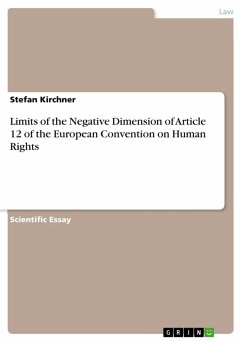Criminal law is one of the most rapidly changing areas of contemporary EU law and integration. The Treaty of Lisbon has elevated it to a central place in the constitution of the EU, within the dynamic area of freedom, security and justice. The phenomenon of EU criminal law as such is however far from new but has developed on an ad hoc basis, not least as a result of the case law of the European Court of Justice. Central to the Court's reasoning in this area has been the principle of effectiveness. A main theme running through the book is therefore the role of the axiom of effectiveness, which is critically examined, with particular attention to its use by the European Ccurt of Justice in recent leading cases. This book explores the constitutional principles underlying it, both those determining the substantive values it embodies, and those determining its scope and extent. Other chapters consider the phenomenon of preventative criminalisation at EU level and the protection of subsidiarity and proportionality in EU criminal law. The balance between effective EU action, proper control of competence and adequate protection of individual rights is of growing importance as EU criminal law expands, but, as this book suggests, has not yet been fully articulated or entrenched by the institutions of the EU.









